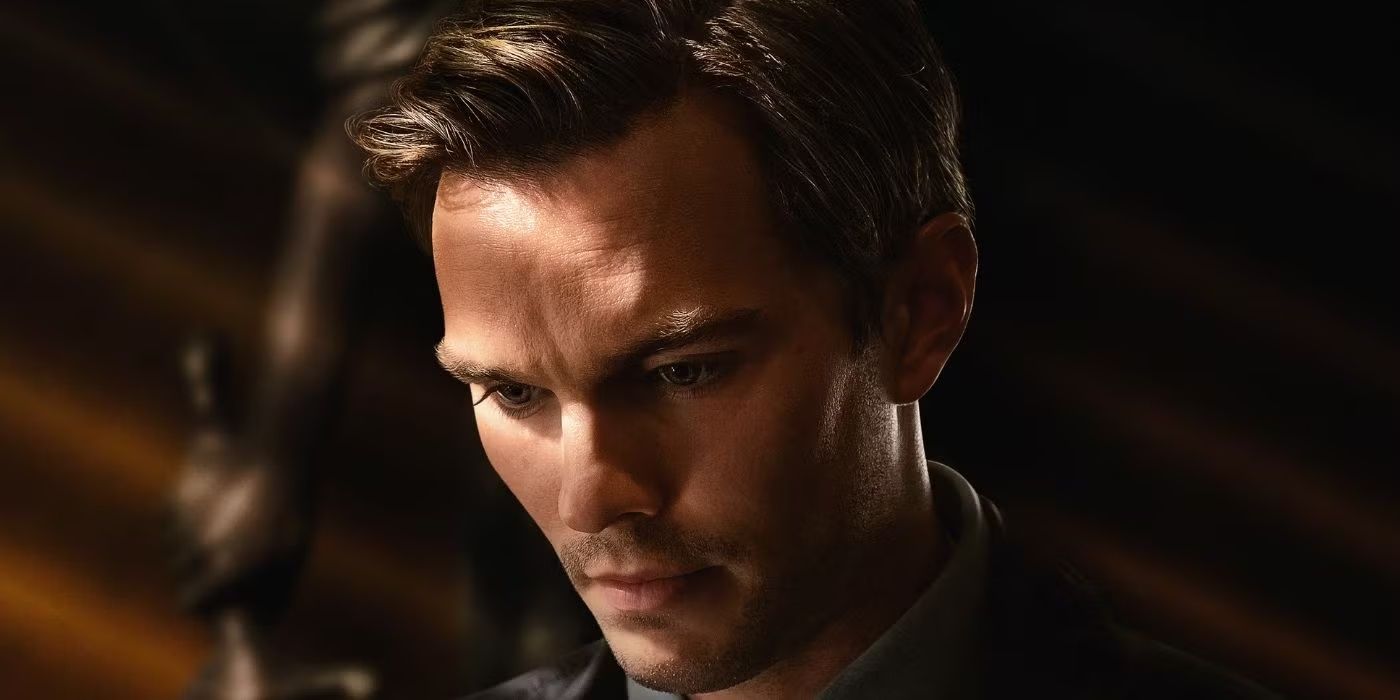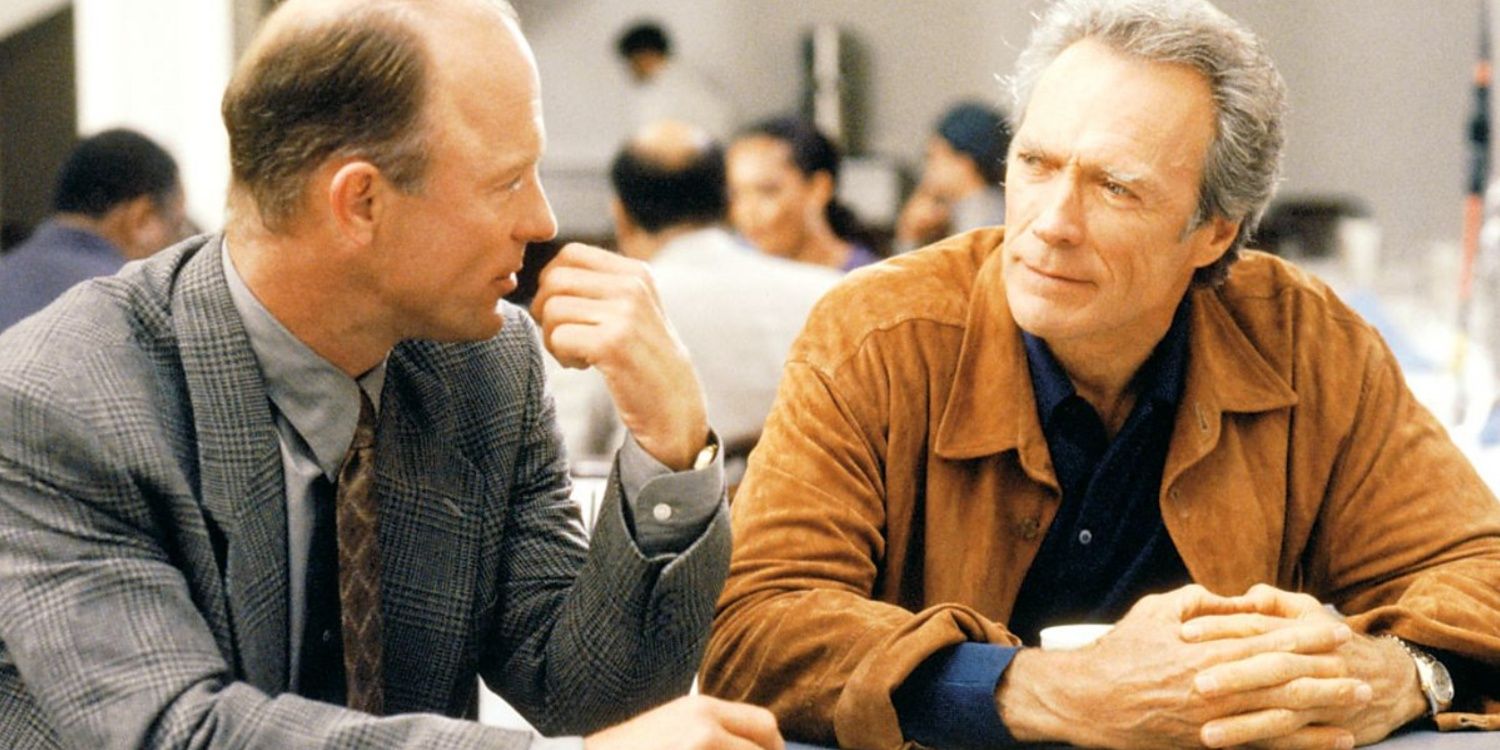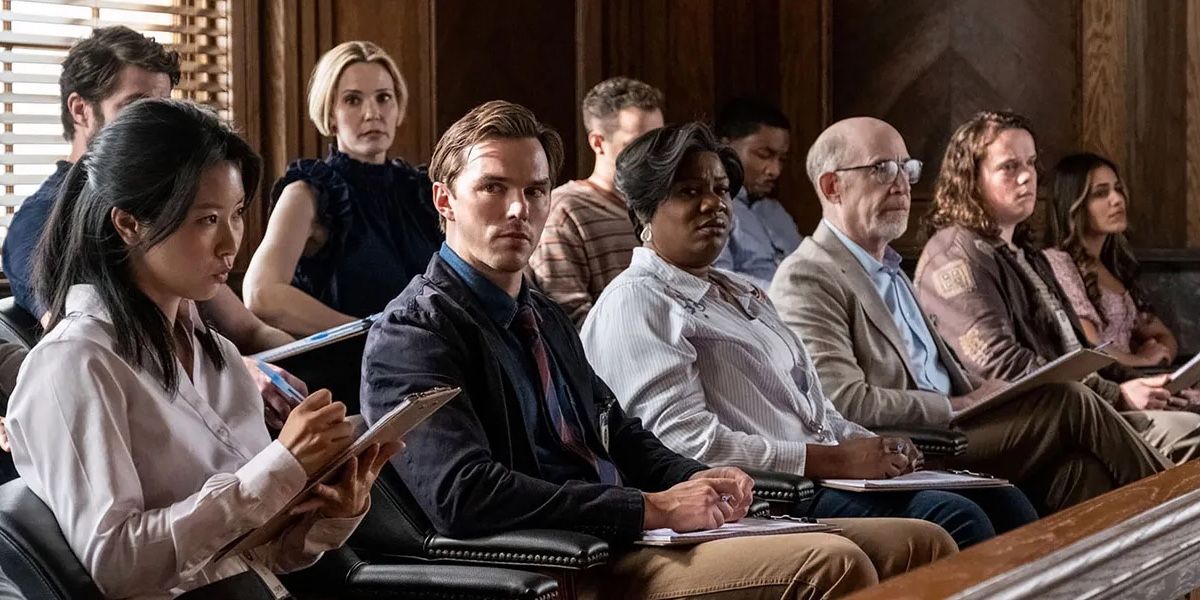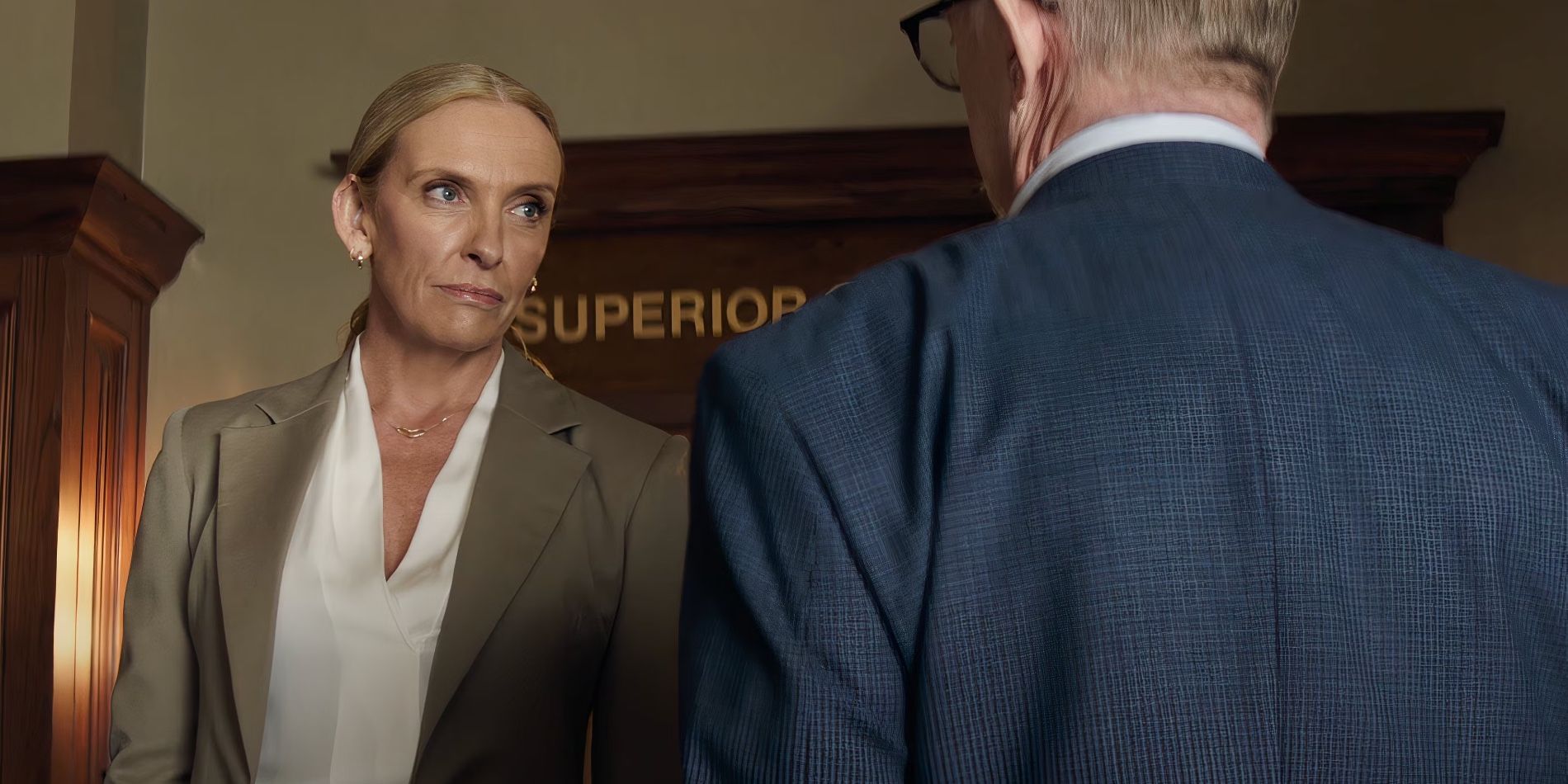
The following contains spoilers for Juror #2, now playing in theaters.
Much has already been said about the poor marketing campaign behind Clint Eastwood’s latest movie, Juror #2, which will only play in 50 theaters across the United States before getting a streaming release later this year. That is a shame, as Eastwood’s prowess as a movie star is only matched by his status as one of Hollywood’s most reliable actors-turned-filmmakers, directing everything from war films to crime thrillers and (of course) westerns. At 94 years old, there’s a very high chance Juror #2 could, sadly, be Eastwood’s last film. But if this is Eastwood’s final ride into the sunset, he’s ending his career on a high note.
With Juror #2, Eastwood delivers a thrilling and morally tense courtroom drama that feels like a Hitchcockian version of the seminal 12 Angry Men, expertly leaving audiences in suspense about how the story and the jurors within will reach a verdict until the very end. Boosted by a strong performance from Nicholas Hoult, Juror #2 is at its best when testing its lead’s morality and, in turn, putting the viewers in the awkward position of being eager accomplices.
Juror #2 Questions Whether a Juror is Really the Culprit
The Movie Puts a Unique Spin on Hollywood Courtroom Dramas
No one likes serving jury duty, and Justin Kemp (Hoult) is no exception. A lifestyle reporter living in Georgia with his pregnant wife Ally (Zoey Deutch), Justin hopes to be there for her before she goes into labor, with both still reeling from the hardship of Ally’s miscarriage a year prior. Despite his best efforts, Justin is selected as “Juror #2” and put on the stand with eleven others for the high-profile murder case of Kendall Carter (Francesca Eastwood) by her boyfriend James Michael Sythe (Gabriel Basso), who witnesses recall getting physical with Kendall in a local roadside bar before her body was found the next day.
As opening arguments proceed, however, it soon dawns on Justin that he knows things that could upend virtually everything about this case for the prosecutor, defense, and even his fellow jurors. That bar Kendall and James attended? Turns out Justin was a few booths over that very night, nearly on the verge of relapsing into alcoholism. The bridge pass where her body was discovered? His car ran into something close by and, despite thinking it was an animal, is now no longer so sure. It’s the ultimate conundrum – casting judgment on a case where the juror might be the guilty party, even though, until that very moment, he didn’t even realize he was guilty of a crime.

Related
Clint Eastwood’s ‘Final’ Film Doing Very Well in Theaters Despite Limited Release
Clint Eastwood’s newest movie, marketed as his final film, is making the best of its limited release.
It helps that the ever-versatile Hoult understands the value of making viewers feel bad for Justin’s predicament. Recently, Hoult starred in the crime drama The Order as the white supremacist Bob Mathews, a terrifying individual who genuinely believed that his “family man” status gave him the proper justification to commit crimes and instigate a race war against the U.S. government. Juror #2 approaches this from the opposite end, utilizing the actor’s everyman status to great effect. Justin is, for the most part, a decent man who, thanks to these court revelations, finds himself in a no-win scenario: confess and go to jail, thus leaving Ally to raise the kid on her own, or side with the jury and let Sythe go to jail for a crime he didn’t commit. While Juror #2 never explicitly shows Justin hitting the victim, other scenes — like an eyewitness mistaking him for Sythe in the pouring rain — succeed at letting the revelation sink in for Eastwood’s audience. And, of course, the perception of guilt matters a great deal in a court of law. As Justin’s Alcoholics Anonymous (AA) coach and lawyer, Larry (Keifer Sutherland) points out when he seeks legal counsel, a past with booze plus being in the same location as the victim would overwhelmingly convince a jury of his guilt. Bad optics would override anything else.
Juror #2 Invokes 12 Angry Men’s Character-Driven Nature
The Movie’s Courtroom Scenes Show Off Eastwood’s Mastery of Suspense
Of course, the rest of Juror #2‘s cast have their own stakes in this case. For prosecutor Faith Killebrew (Toni Collette), sending Sythe away will bring her one step closer to higher office, so she can’t afford to have the jury vote innocent or deadlocked. Yet the more she interacts with defense lawyer Eric Resnick (Chris Messina) or reviews her evidence, the harder it is for Faith to have complete… well “faith” in the case’s direction. The jury’s characterization, by comparison, is more of a mixed bag. Each member is well-acted, but while they have meaningful conversations about the evidence and whether Sythe’s truly guilty, there’s not enough time devoted to giving every character their chance in the spotlight. That is, with two exceptions. The always-reliable J.K. Simmons is great as Harold, a local shop owner whose past convinces him to dig further into the details of what happened that night. Cedric Yarbrough also shines as Marcus, a disaffected curmudgeon who, due to his experience with Sythe’s criminal past, doesn’t wish to be persuaded otherwise about his guilt. In both cases, Juror #2 ups the stakes by giving Justin unwitting adversaries who threaten to expose his motives if he’s not too careful, thus generating tension as the very thing Justin wishes to keep hidden makes their way to the forefront of the jury’s mind.
This is where the 12 Angry Men parallels shine brightest. Hoult is thrust into the Peter Fonda role of a lone holdout voice trying to convince his peers of a convicted man’s innocence. The twist, naturally, is that Justin has full awareness of the real “truth,” but can’t say it outright without incriminating himself. It’s a delicate tightrope he’s walking, appealing to the jurors’ humanity and nudging them to find holes in the prosecutors’ story without ever letting them know that he knows more. Or, when they seize upon the car theory as plausible, muddy the waters around that idea without making it look like that’s what he’s doing. It’s in these scenes where Eastwood emphasizes the humanity of his characters, not just the ones in the jury box, but the people on trial or making the cases for and against the accused. He allows the viewer to understand what motivates them and ultimately influences their perception of “justice.” All these leave Juror #2 in a place where, regardless of the duplicitous actions of its lead, it’s hard to assign any clear-cut villains or heroes.

Related
Clint Eastwood Called This 74-Year-Old Noir Comedy His Favorite Film
Although Clint Eastwood is best known for his prolific career in the Western genre, he actually accredits this classic comedy as his favorite film.
Stylistically, Juror #2 opts for more simplistic storytelling techniques over anything bombastic. Musical cues are kept at a minimum and Yves Bélanger’s cinematography never employs any shots that will stick with the viewer after the credits roll. Even so, the old-fashioned nature of Juror #2 keeps it unique, prioritizing Hoult’s conversations with his supporting cast and the dramatic irony surrounding the central trial to keep people guessing how the story will end. It’s a very actor-driven movie, particularly during the flashbacks where audiences see how that fateful night unfolded from Justin’s perspective. Here, the viewer sees Hoult at what feels like rock bottom, a far cry from his present-day self who, for all the uncertainty surrounding Ally’s pregnancy, seems to have pulled himself out of that emotional ditch. Even when the evidence might point in his direction, it’s difficult for the audience to turn on Justin completely.
Juror #2 Potentially Brings Clint Eastwood’s Directing Career to a Satisfying End
The Movie Revisits Classic Themes From Clint Eastwood’s and Other Directors’ Works
The Hitchcock vibes are also quite evident. From North by Northwest to Psycho, Alfred Hitchcock always had a select few tropes and themes he loved revisiting time and again in movies. After all, the idea of an innocent man thrown into conspiracies outside his control often laid the foundation for Hitchcock’s best thrillers. What Juror #2 does so well is flipping the script on that dynamic and twisting the viewer’s understanding of “innocence.” In this case, the law is both Justin’s unwitting pursuer and the vehicle with which he’s deliberating a client’s innocence for partially self-centered reasons. These are completed with the Americana-inspired visuals one might expect out of an Eastwood film. Which, again, makes Warner Bros’ decision to cut down on Juror #2‘s lack of theatrical releases all the more baffling and infuriating.
Compared to 50-plus years of movies he’s directed, Juror #2 can be viewed as very low-key in the Eastwood filmography lineup. There are no shootouts or action-packed setpieces one might expect from his works, nor is there a culture war-inspired scandal accompanying its release that consumed American Sniper a decade ago or Richard Jewell in 2019. Instead, Juror #2 offers simple, yet very effective moviemaking that feels like it could easily rank up there in Eastwood’s top ten alongside the likes of Grand Torino, Unforgiven, and Letters from Iwo Jima, Perhaps this is the end of Eastwood’s time in the director’s chair, but one can’t say he didn’t go out making everyone’s day.
Juror #2 is currently playing in select theaters.
Family man Justin Kemp who, while serving as a juror in a high-profile murder trial, finds himself struggling with a serious moral dilemma…one he could use to sway the jury verdict and potentially convict – or free – the wrong killer.
- Compelling performance by Nicholas Hoult
- Clint Eastwood’s direction remains as strong as ever
- Courtroom scenes effectively generate suspense
- Plot excels at moral ambiguity
- Most supporting characters give good performances
- Not every member of the jury receives equal depth
Discover more from reviewer4you.com
Subscribe to get the latest posts to your email.







